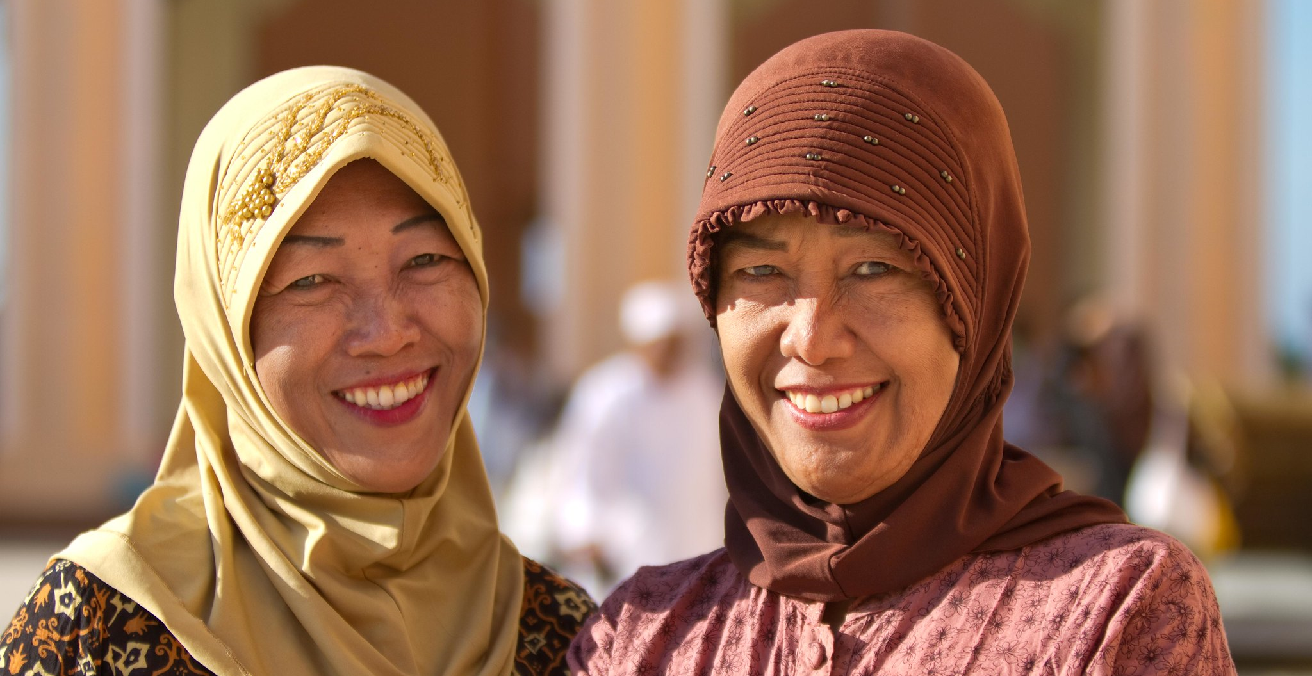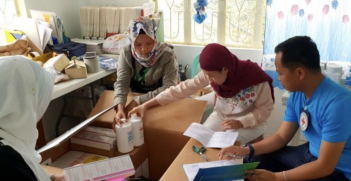Indonesia’s NAP CVE as an Instrument of a Gendered Non-Traditional Security Approach in Indo Pacific

Indonesia’s new National Plan of Action on Countering Violent Extremism that Leads to Terrorism aims to involve both government and civil organisations in a comprehensive counter-terrorism strategy. It appears as an advancement towards the construction of a gendered response to terrorism and extremist violence in South-East Asia.
Terrorism and extremism did not cease when COVID-19 broke out. South-East Asia continues to face violence by associates of ISIL and Al-Qaida. Al-Qaida’s principal affiliate in South-East Asia remains Jemaah Islamiyah (JI). In Indonesia, counter-terrorism forces have recorded successes in either disrupting attacks before launching or targeting key leadership figures. However, the role of women in recruitment, radicalisation, and operational activities is a constant challenge.
Violent extremism requires states to rethink traditional approaches to security. One example is the Indonesian “whole government and whole society approach,” the National Plan of Action on Countering Violent Extremism that Leads to Terrorism (NAP CVE) signed by President Joko Widodo on 6 January 2021 following three years of development. Its objective is to prevent the emergence of the potential for the extreme violence that leads to terrorism. In the 113 pages of the attachment of Presidential Decree 7/2021, the NAP CVE seeks to:
- Improve inter-agencies coordination in preventing and countering violent extremism that leads to terrorism;
- Increase participation and synergy in implementing NAP CVE programs carried out by ministries, regional governments, civil society, and other parties/ stakeholders;
- Develop data collection and monitoring instruments systems to support efforts to prevent and counter-extremism; and
- Enhance international cooperation, through bilateral, regional, and multilateral cooperation, in the preventing and countering of extremism.
Put into Indonesia’s democratic context, the drafting process of the NAP CVE was participatory, with meaningful input from community organisations. Activists, grassroots leaders, and academics of all genders contributed various substantive aspects to the NAP, including strengthening gender dimensions, protecting human rights, preventing policies that are not biased towards community groups, as well as strengthening digital literacy to counter hateful online narratives.
This formulation process shows how the prevention of extremism has become a problem for many facets of society, not just the government. For example, terrorists lure women and youths using online messaging, which requires an action-oriented preventive policy response. Additionally, the rising trend of female terrorist actors has challenged “business as usual” traditional security approaches. Therefore, the Counter Terrorism Agency invited inclusive stakeholder participation to formulate an integrated prevention strategy.
Although it is not a criminal law, the National Plan of Action on Countering Violent Extremism that Leads to Terrorism is expected to guide activities to respond the needs of a society has suffered from impacts of acute extremism. As the national strategy document for handling violent extremism that leads to acts of terrorism, the NAP CVE is significant for several reasons. First, the NAP CVE facilitates an integrated national strategy which covers operative frameworks for the governments at the national and local levels. Secondly, the NAP CVE facilitates a policy framework for security issues that are not defined by traditional perspectives. The NAP CVE highlights civil society’s participation in addressing violent extremism, and it includes female organisations that were not previously mentioned in Indonesian law.
Important Feedback towards NAP CVE
The document has received feedback from academics, think-tanks, female activists, and political party members that reflects the extent of public opinion on non-traditional security threats. An obvious challenge identified is the institutionalisation of the violent extremism concept in regulations in Indonesia. The complexity of institutionalising and implementing policies began with the dispute over defining what is termed as “violent extremism” among parties. However, policymakers also face a fast and dynamic environment regarding the threat of violent extremism which could easily tear the social fabric of Indonesian society and therefore requires an operative preventive policy.
Other critiques address the gendered perspective of the document, which is considered to be lacking. As part of the drafting team, I witnessed that the composition of the team already represented a gender-proportioned membership. However, it remains clear the bureaucracy /counter-terrorism agency with the “security sector” portfolios still need to integrate gender mainstreaming, both in terms of policy-outputs and work ethic. This would work to prevent gender “neutrality” as perceived in the NAP CVE contents. As well, the NAP CVE has received gender-sensitive feedback from human rights activists and women’s organisations who have understood and followed the changing dynamics of violent extremist actors in Indonesia and discussed prevention approaches.
The Asian Moslem Action Network (AMAN) Indonesia, a civil society organisation involved in making NAP CVE, as well as the founder of Working Group on Women and P/CVE network, recognised the crucial role of civil society in the NAP CVE and demanded more gender-sensitive approaches be applied towards prevention measures. In past terrorism cases in Indonesia, women were not only victims, but also played an active role as recruiters, supporters of terrorist action, and indoctrinators of children. Despite this, the document recognises women’s potential role as peace builders. In the NAP CVE drafting process, AMAN proposed to strengthen women’s capacity as recruiters for peace building to build community resilience.
Eva Sundari, a female activist from the nationalist political party, the Indonesia Democratic Party- Struggle (Partai Demokrasi Indonesia- Perjuangan) proposed gender mainstreaming should be warranted in the implementation of the Presidential Decree 7/2021. Sundari advocated this could be achieved through the insertion of mandatory involvement (quota) of women in internal regulations for formulation of policies, as well as through the creation of a “Joint Secretariat”.
As well, IMPARSIAL, a prominent think tank advocating for reform in Indonesia’s security sector, asserted the Indonesian government must be careful in implementing the NAP CVE, flagging the importance of monitoring and evaluation systems in NAP CVE implementation.
Support was voiced by a female member of parliament, Christina Aryani, who mentioned that presence of this legislation shows the government’s commitment to tackling extremism. As well, the Presidential Chief of Staff Moeldoko mentioned that the NAP CVE was a policy tool which aimed to empower society to be more aware of their surroundings from the creeping extremism which leads to terrorism. Such assessments were not unfounded, especially considering the 2018 Surabaya attacks, a series of massive attacks conducted by family groups. Such attacks showed the changes in actors, from former male predominance to the inclusion of female terrorists.
Conclusion
Violent extremism and terrorism are real threats in Indonesia, as well as on the global stage. Therefore, having a state policy to tackle these threats is essential. Overcoming these threats require a more inclusive approach including systematic preventive measures which can directly address the driving factors of violent extremism. In this context, the participation of stakeholders in prevention measures is crucial and timely. However, it is difficult to utilise partial policies and strategies to produce optimal results, given the complexity of the roots and sources of the problems that exist. Eventually, the efforts to promote policy policies and the interaction or participation of various stakeholders to recognise it needs to be put forward.
Indonesia’s policy making on security sector still requires improvement, moving beyond constructing gender mainstreaming purely in policy outputs towards enshrining it as “philosophy” underpinning policy formulations. As part of the “whole society approach,” the stakeholders could link the women’s peace and security agenda with counter-terrorism and countering-violent extremism. Regardless, the implementation phase of the NAP CVE still allows for the endorsement and articulation of a gender-based approach to the prevention of violent extremism by ministries and civil society organisations. Even though the final document is not ideal, the good intentions and steps taken by drafters should still be appreciated.
To conclude, the NAP CVE marks positive progress in Indonesia’s commitment to counter-terrorism measures to ensure peace and security in the context of Indo-Pacific arrangements. UN Security Council Resolution 2178 underlines the importance of preventing and overcoming violent violence and terrorism in line with human rights principles and standards and international norms, calling for comprehensive and collective efforts to prevent and combat violent extremism and terrorism. As a framework for action, the NAP CVE can be considered both inclusive and collaborative.
Irine Hiraswari Gayatri is a PhD Candidate at the Monash Gender, Peace and Security, School of Social Sciences, Faculty of Arts Monash University. She is also a senior researcher at the Centre for Political Studies, Indonesian Institute of Sciences (LIPI). Irine obtained her MA from the Department of Peace and Conflict Research, Uppsala University, Sweden. In September and November 2017, she participated in regional forums facilitated by UN Women and UNODC in Bangkok to discuss the formulation of a national plan of action on countering and preventing violent extremism (P-CVE). From 2017-2019, Irine joined a small team led by the National Counter Terrorism Agency in developing the draft for National Action Plan on Preventing Violent Extremism in Indonesia.
This article is published under a Creative Commons License and may be republished with attribution.





